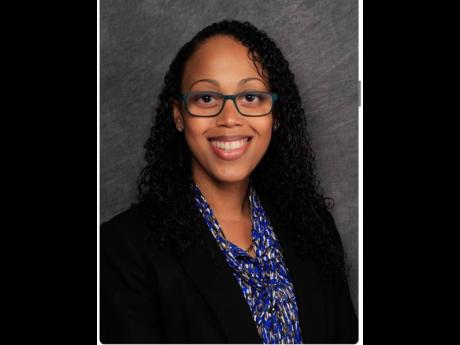40-hour workweek
Doctors hold hard line as job loss deadline looms
Less than 24 hours before a July 1 deadline for the tenure of more than 140 doctors to lapse, the health sector could buckle if the Jamaica Medical Doctors Association (JMDA) follows through on a call to hold to a 40-hour workweek. A meeting on...
Less than 24 hours before a July 1 deadline for the tenure of more than 140 doctors to lapse, the health sector could buckle if the Jamaica Medical Doctors Association (JMDA) follows through on a call to hold to a 40-hour workweek.
A meeting on Tuesday between JMDA President Dr Mindi Fitz-Henley and Health Minister Dr Christopher Tufton appeared to have ended in deadlock, with both parties holding their line in a simmering row over short-term contracts that could leave scores of doctors jobless.
Sources close to Tuesday evening’s caucus of doctors reported that Fitz-Henley charged that ministry officials were seeking to chuck responsibility for the contract dispute.
“We realised that we were in a blame-game situation. Each person was blaming someone else,” Fitz-Henley is said to have told doctors amid protest by members.
“Some are blaming the SMOs (senior medical officers), some are blaming the permanent secretary, because the PS was who would have actually signed off on this order to be made where there is room to contract people for six months during the COVID surge.”
Speaking to The Gleaner on Tuesday, Tufton said there was no guarantee that the more than 140 doctors whose tenure as senior house officers (SHO) end today would be rehired.
Tufton disputed some of the claims of the JMDA, saying there seemed to be “a lot of discrepancies”.
“The regions did hire doctors as part of COVID. The numbers I have are 23, and I think there is a general acceptance that that was an agreed position, which under the heads of agreement is allowed,” Tufton said.
The membership of the JMDA has been urged not to do more than their fair share, The Gleaner understands.
“Do your job and do it well, but don’t try to fill a gap. We all patch the system for them. Forty hours for the week. We will do it well, but we will do nothing outside of that,” Fitz-Henley is said to have told Tuesday night’s caucus.
“I am personally not going to let any of our members overwork themselves to now go and fill these gaps that are going to be created.”
While agreeing that more jobs needed to be incorporated into the establishment, the minister maintained that there was no budgetary support for an increase now. Tufton said the JMDA’s proposal was a budget-buster.
“The issue there is that a number of positions that we created led to the recruitment and hiring of those SHOs. The SERHA region, for example, said that they hired just over 30 and the other regions may either be in the process or have hired a few others,” Tufton told The Gleaner.
“The reality is that unlike the case last year when we made provisions for 110, which cost almost $600 million for the year; if we were to take on the 147, it would require an additional budget of a billion dollars.”
Tufton argued that training numbers at The University of the West Indies have been consistently higher since the $3.5-billion, state-of-the-art medical school became operational in 2012.
Over time, he said, the SHOs have outnumbered the spaces available.
Tufton said that outgoing SHOs are leaving to create positions for 167 incoming SHOs.
“Those SHOs will effectively be in the system, so it’s not a case of a gap being created. There is uncertainty and there are no guarantees about the employment of those unless the regions have additional positions that need to be filled,” he said.
Meanwhile, a proposal has been made to the JMDA to have outstanding gratuity paid over a two-month period, with payments beginning in July.
“It is not a budgeted item, but we believe it is deserving that we make the effort to do it, because frankly speaking, it’s untenable that they would have to wait so long,,” the health minister said.
Tufton explained that a reconciliation initiated by the ministry identified $500 million in outstanding payments since 2014.

